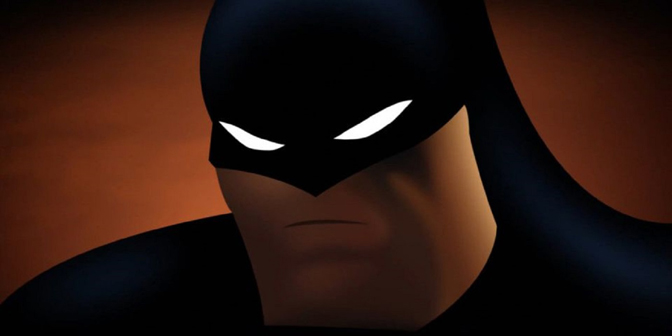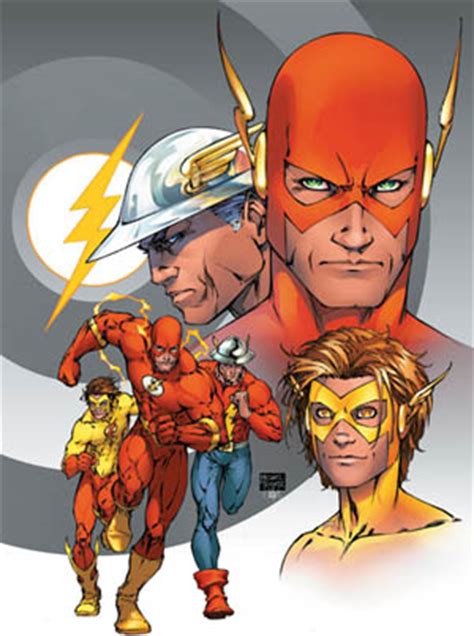On twenty-two years of loving DC Comics, and four of moderating its largest fan subreddit.
Originally posted 11/7/2018


As I transitioned from B:TAS into The New Adventures of Batman, I saw relationships within the Bat-family change. Dick Grayson, known as Nightwing but previously Robin, had developed a love-hate relationship with his guardian, Bruce Wayne. He was vocal about how manipulative Bruce was, and how unafraid he was to put those he cared for in danger. And at eleven years old, I was able to process these stories better. Bruce was troubled, and sometimes blind. He routinely jeopardized the safety of Batgirl, and his newest ward and Robin, Tim Drake, who was barely a teen. In an episode, ____, Dick explains this to Tim, telling him why he left Bruce's side.
At twelve, I was exposed to other Warner Brothers' animated shows, and fell in love anew. Initially discovering Wally West, the third character to carry the Flash mantle, through Superman: The Animated Series, I saw him take a main-character role in Justice League (the show). His character was snarky and vibrant, and genuinely optimistic - a far cry from Bruce. He cracked jokes at other peoples' expense, had red hair, and ate a lot. By this point, the animated shows were not enough. I had read paper comics in the past, but I needed Wally's source material. And with uninhibited access to the internet, I was able to find it.

From toons to books
This was a big step in my understanding of the universe. Officially in my teens, I was starting to a develop mature ideas on themes like isolation and depression, but also true joy, security, and friendship. Wally's main stories, captured in The Flash: Volume 2, gave me much more than I could have imagined.
Yes, there was the trademark snark and humour, and the silly storylines that came with them. I also read his vocalizations on other topics. The sadness he felt when he lost his uncle, Barry Allen. The anger he felt towards Bruce Wayne, an uncle-like figure to him, on the discovery that he was keeping all his peers under surveillance without their consent. The annoyance he felt towards his cousin, Bart Allen, who effectively showed up out of the blue. Also, and fairly importantly, the deep affection he had for his childhood friends - Dick Grayson (sound familiar?), Donna Troy - sister of Wonder Woman, Roy Harper - Green Arrow's ward, and Garth - son of Aquaman. And I had read about all of that as well, through the Teen Titans title by Marv Wolfman and George Perez. I saw them, Wally and all his friends, grow from young teens into adults, with real adult responsibilities, families, and even financial woes. At that point, you become attached to the characters; I have heard the same from people who grew up reading the Harry Potter series.
Something I neglected to mention was that my early childhood was abroad - primarily in Dubai. We lived in these expat compounds; most of school friends didn't live in the same one as we did. Not that I was particularly active, but I had no real incentive to go out and play. My mother, who loved to read, passed that love of reading down to me, so I was happy to sit inside and do just that. I had become the type of girl who would read Oscar Wilde essays for book report assignments, and Homer's Oddysey at lunch in grade six. In later years, comic books were added to the routine, and I was perfectly primed for the dialogue-heavy issues that DC put out.
By the time I reached highschool, I had developed no shortage of hobbies - art, music, programming, sports. I was on the varsity wrestling team and the editor of the yearbook two years in a row - but I was still reading huge trades at a time; Green Lantern, Hawkman, Young Justice, Animal Man, and so on. I had even explored a bit of the Marvel Universe in reading all of Civil War. I had temporarily abandoned Batman, but I became re-invested in the title after borrowing Batman: Hush from, Marcus, one of my best highschool friends.
How comics shaped my early adulthood
Nearly everyone's early twenties are very transitional. What started in highschool finally reaches its peak. You continue to discover yourself - sometimes in shallow and cringe-inducing ways. It is natural to seek out material that feels reflective of your inner self, like emo music, or esoteric but horrible fan-fiction.
I did neither of those things in particular, but the darkness I sought from my reading material intensified.
Engineering at the University of Waterloo was not the breeze I had expected it to be, especially since my highschool grades had been stellar without much effort. In times I felt down, I would, on occasion, return to my vice. But I was reading more and more about emotional strife rather than physical fighting. I became addicted to stories about sorrow, though I'd always had a bit of a taste for it. I wanted so badly to read about all of it - the stress, the PTSD, the loss of family - not just to death, but to permanent injury, addiction, and the silence that results from words you can never take back. I would go back and re-read the worst parts of the Flash, like when Mirror Master accidentally sniped his own father and found that his mother had committed suicide from grief, or when Hunter Zolomon punched Wally's wife Linda in the stomach when she was carrying twins.
As my reading material became more mature, I expanded into Vertigo comics, whose most well-known titles include V for Vendetta, Fables, and The Sandman. Books like these stimulated my mind, and greatly influences my art. I became a better world-builder, by absorbing, through reading, the story-telling of authors like Neil Gaiman, Alan Moore, Gail Simone, Brian K. Vaughn, and Len Wein.
I also realized something strange and sad in a way; these characters felt like my friends. Books end, as do shows and games. But these characters continued to persist - coming back to life even after death. Ultimately, I was never truly left with that sense of separation, and that's something I could take comfort in. These guys kind of just hung around forever.
The first books I bought when I moved to Seattle were Flash: Rogue War, and Flash: Blitz, both from the Flash: Volume 2 I treasured, but only owned digitally. I knew the stories already, but re-reading was familiar, a source of comfort in a city that was new to me. I recall posting pictures of these books on /r/dccomics for the cheap dopamine kick I'd inevitably get for the easy karma. Little did I know that, just over a year later, I'd be asked to become a moderator of the community.
/r/dccomics, to me, was a shining light among the sea of bitter and toxic subreddits. The mods had tried extremely hard to keep the environment friendly and inviting.
/r/dccomics currently has 200k subscribers. This is astounding, but no surprise given the super-hero-movie-machine that has been chugging away the last few years.
Now
I don't openly advertise my love of comics the way I used to, partially because I no longer feel like it is a defining trait.
I do take issue, however, with people who trivialize the genre.
Comics can be silly. They can have bad aesthetics. They can be poorly written. And they are allowed to be, as much as any book or movie is allowed to be. But some truly phenomenal writers and artists have contributed to the genre, writers, for example, like Stephen King. The sheer amount of artistry and work - writing, pencilling, inking, colouring, lettering - is really something to stand back and admire.
Things are certainly different now. While many of us are sick of the over-abundance of super-hero, fantasy, and sci-fi movies that are being made, it says something that the demand has been so high that these movies are now normal.
© Bhavya Kashyap. All rights reserved. Design: HTML5 UP.